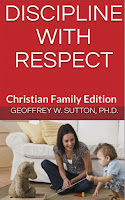Stoning a Rebellious Son?
"If someone has a stubborn and rebellious
son who does not obey his father and mother and will not listen to them when
they discipline him, 19 his father and mother shall take hold of him and bring
him to the elders at the gate of his town. 20 They shall say to the elders,
“This son of ours is stubborn and rebellious. He will not obey us. He is a
glutton and a drunkard.” 21 Then all the men of his town are to stone him to
death. You must purge the evil from among you. All Israel will hear of it and
be afraid."
Deuteronomy 21:18-21 New
International Version (NIV)
It’s hard to imagine more severe discipline
than this oft quoted text from the Bible! Obviously, stoning is way beyond what
we would call child abuse today. In our age, hitting children is illegal in some places and a violation
of various policies in other places. Certainly, there is no justification for taking a son’s
life for “stubborn and rebellious” behavior.
As you might expect, conservative Christian
scholars have addressed this verse. No credible Christian leaders consider
stoning to be a Christian way to treat sons. So, what does the verse have to do
with Christian discipline? This, when Christians look to the Bible for
guidance, they must be aware that Christians do not have to include the ancient
laws of Israel in their discipline plans. You may also note that there is no evidence this law was ever put applied.
Sure, you may be curious about this old law
about stoning. Unfortunately, if you look up what others have written, you will
find many opinions. If you remain curious about the verse, I suggest looking at the information
about the “rebellious son” in the Jewish Virtual
Library online.
Good parenting is about relationships.
Discipline with Respect takes a distinctly Christian approach based on the loving
relationship between Jesus and the church family illustrated in the New Testament texts.
Parents
in a loving relationship with children will focus on encouraging responsible
and respectful behavior toward their parents and others—including themselves.
Christians are mindful of the letters of Ephesians
(6:4) and Colossians (3:21) warning fathers against provoking their children to
anger.
Negative consequences belong in the context of a loving relationship
and a plan that emphasizes positive consequences for following the rules.
Discipline programs do include negative
consequences linked to what happens in life. That is, depending on how we act
as adults, we lose the privilege of interacting with others, lose jobs, lose
opportunities, and pay fines. Thus, losing privileges, losing opportunities,
and paying for mistakes are among the negative consequences for misbehavior
covered in Discipline with Respect.
Also, lead a discussion with this low-priced Christian Parenting leader's guide.















